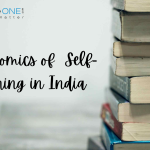Introduction to International Publishing
Understanding the Role of Book Publication Houses
Book Publication House’s Global Expansion Strategies for Authors
Leveraging Book Publication Houeses for International Reach
Overcoming Challenges in Global Publishing
Trends and Opportunities in the International Book Market
Final Thoughts
Introduction to International Publishing
In an increasingly interconnected world, the realm of publishing has undergone significant transformation. With the advent of digital technology and global distribution networks, aspiring authors now have unprecedented opportunities to share their work with readers worldwide. However, navigating the complexities of international publishing can be daunting.This is where book publication houses come into play, offering authors the expertise and resources needed to reach a global audience.
In this article, we delve into the role of book publication houses in facilitating global publication and explore the advantages they offer to authors seeking international reach.
Understanding the Role of Book Publication Houses
Book publishing houses act as the gatekeepers to the world of imagination in the complex world of literature, where words weave stories and ideas transcend boundaries.
These organizations are essential in forming the literary landscape since they act as a conduit between writers and readers. Understanding their importance reveals the complex workings of the publishing industry and illuminates the process of a manuscript from idea to print.
Cultivating Literary Talent
One of the primary functions of book publishing houses is to discover and nurture literary talent. They serve as incubators for budding writers, providing them with the platform and support needed to refine their craft.
Through rigorous selection processes, publication houses identify manuscripts with the potential to resonate with readers and invest resources in developing them into polished works of art. This process not only ensures the quality of published material but also fosters creativity and innovation within the literary community.
Editorial Expertise
Every book publishing house has a group of committed editors at its core who are instrumental in transforming manuscripts into publications. These experts offer priceless comments, assisting writers in refining their work and supporting them through the revision process.
Editors work closely with authors to ensure that their vision is realized while respecting the integrity of the work. This collaboration can range from structural edits to line-by-line corrections. Their experience enhances not only the caliber of each individual manuscript but also the publishing house’s reputation as a whole.
Getting Around the Publishing Landscape
It can be difficult for budding writers to figure out the complicated publishing industry landscape. Publication houses act as your tour guides, providing information on reader demographics, preferred genres, and market trends.
By strategically positioning books, they maximise their visibility and appeal to specific audiences by leveraging their industry experience.
Publication houses also manage the many operational facets of publishing, such as marketing, sales, and distribution, freeing up authors to concentrate on their craft and making sure their work is read by as many people as possible.
Selecting a Range of Voices
In an increasingly globalized world, diversity and representation have become central themes in literature. Publication houses play a vital role in amplifying diverse voices and narratives, enriching the literary landscape with a multitude of perspectives and experiences.
By actively seeking out works from underrepresented communities and championing marginalized voices, publication houses contribute to a more inclusive and equitable literary ecosystem. Through their publishing decisions, they have the power to shape cultural conversations and challenge prevailing norms, fostering a greater sense of empathy and understanding among readers.
Preserving Literary Heritage
Beyond fostering new talent, publication houses also play a crucial role in preserving literary heritage for future generations. Through their backlist titles and archival efforts, they ensure that classic works of literature remain accessible and relevant in an ever-changing world.
By reissuing timeless classics, commissioning new translations, and investing in archival projects, publication houses uphold the rich tapestry of human storytelling, honoring the legacy of past generations while paving the way for future literary endeavors.
You may also like: Effective Book Marketing Strategies 2024
Book Publication House's Global Expansion Strategies for Authors
Translation and Localization: One of the most common barriers to reaching international audiences is language. Translation opens the door to new markets by making your work accessible to readers who may not be fluent in your native language. However, it’s not just about translation; localization is equally important.
This involves adapting your content to suit the cultural nuances, preferences, and sensibilities of different regions. Working with experienced translators and cultural consultants can ensure that your message resonates with readers across diverse cultures.
Partnering with International Publishers: Collaborating with publishers in different countries can provide invaluable support in navigating unfamiliar markets. International publishers have local expertise, distribution networks, and marketing resources that can help promote your work effectively.
By forging strategic partnerships, authors can leverage the strengths of local publishers to maximize their global reach and impact.
Digital Distribution Platforms: The digital revolution has transformed the publishing industry, making it easier than ever for authors to distribute their work worldwide. E-books and audiobooks can be distributed globally through platforms like Amazon Kindle, Apple Books, and Audible, reaching readers in multiple countries with minimal effort.
Embracing digital distribution enables authors to overcome geographical barriers and tap into new markets with relative ease.
Cultural Sensitivity and Research: When expanding into international markets, it’s essential to conduct thorough research and exercise cultural sensitivity. What is successful in one nation might not be appealing to viewers in another.
Understanding the cultural, social, and political context of different regions can help authors tailor their content and marketing strategies accordingly. Building genuine connections with readers requires a deep appreciation for cultural diversity and a willingness to engage with local communities on their terms.
Global Marketing and Promotion: Effective marketing is critical to successful global expansion. Authors should utilize a mix of online and offline channels to promote their work to international audiences.Social media platforms, book blogs, and literary festivals offer valuable opportunities to connect with readers worldwide.
Investing in targeted advertising campaigns can also help raise awareness and generate buzz for your books in key markets. Building a strong author brand transcends geographical boundaries and fosters a loyal global following.
Networking and Collaboration: Building relationships with fellow authors, translators, literary agents, and industry professionals around the world can open doors to new opportunities. Participating in international writing conferences, workshops, and networking events can facilitate meaningful connections and collaborations.
By pooling resources and sharing insights, authors can navigate the complexities of global expansion more effectively and support each other’s journey to success.
Adaptability and Flexibility: Global expansion is a dynamic process that requires adaptability and flexibility. Authors must be willing to experiment, learn from their experiences, and adjust their strategies accordingly.
What works in one market may not yield the same results elsewhere, so it’s essential to stay agile and responsive to changing circumstances. Embracing feedback from readers and industry professionals can help authors refine their approach and evolve their global expansion strategies over time.
You may also like: How to Self-Publish a Book in 2024
Leveraging Book Publication Houses for International Reach
In the current globalized environment, authors looking to reach a wider audience may find it wise to strategically utilize book publishing houses. These houses provide entry points to global markets by providing priceless knowledge and assistance in negotiating the difficulties associated with foreign distribution, translation, and marketing.
Through partnerships with well-established international publishing houses, writers can access global networks and reach a wide range of readers who are eager to discover fresh perspectives in literature. These kinds of partnerships not only raise an author’s profile but also increase the likelihood that their writing will resonate with readers throughout the world and create important connections.
Overcoming Challenges in Global Publishing
In today’s interconnected world, the global publishing industry faces a myriad of challenges, ranging from technological advancements to cultural barriers. However, with innovation and adaptation, these challenges can be overcome, paving the way for a vibrant and inclusive publishing landscape.
1. Digital Transformation
The rise of digital technology has transformed the way content is consumed and distributed. E-books, audiobooks, and online platforms have revolutionized the publishing industry, presenting both opportunities and challenges. Publishers must adapt to this digital landscape by investing in digital infrastructure, embracing new distribution channels, and exploring innovative monetization models such as subscription services.
2. Cultural and Linguistic Diversity
One of the greatest challenges in global publishing is catering to diverse cultural and linguistic preferences. Publishing content that resonates with audiences from different cultural backgrounds requires sensitivity and understanding. Publishers can overcome this challenge by collaborating with local translators, cultural consultants, and diverse authors to ensure authenticity and inclusivity in their offerings.
3. Copyright and Piracy
Protecting intellectual property rights is a constant battle in the digital age. Online piracy poses a significant threat to publishers, undermining their ability to monetize content and sustainably operate. To combat piracy, publishers must employ robust digital rights management strategies, utilize encryption technologies, and advocate for stronger copyright enforcement measures globally.
4. Market Fragmentation
The global publishing market is fragmented, with varying regulations, distribution channels, and consumer preferences across different regions. Navigating this complexity requires publishers to adopt a flexible and adaptable approach. Strategic partnerships with local distributors, market research, and targeted marketing campaigns can help publishers effectively penetrate diverse markets and reach a wider audience.
5. Accessibility and Inclusivity
Ensuring accessibility and inclusivity in publishing is essential for reaching all readers, including those with disabilities and marginalized communities. Publishers should prioritize producing content in accessible formats such as braille, large print, and audio descriptions. Additionally, embracing inclusive hiring practices and actively seeking diverse voices can enrich the publishing landscape and foster a more inclusive literary culture.
6. Emerging Technologies
Advancements in artificial intelligence, augmented reality, and immersive technologies present exciting opportunities for the publishing industry. By integrating these technologies into their offerings, publishers can create immersive reading experiences, personalized content recommendations, and interactive storytelling formats. Embracing innovation will enable publishers to stay ahead of the curve and engage readers in new and exciting ways.
you may also like: 6 Most Selling Books of All Time in English
Trends and Opportunities in the International Book Market
Digital Dominance: With the advent of e-readers, tablets, and smartphones, digital books have become increasingly popular among readers worldwide. E-books offer convenience, accessibility, and often lower prices compared to their physical counterparts. This trend is particularly evident in regions with high internet penetration rates, where readers are embracing digital platforms for their reading habits. Publishers have the opportunity to capitalize on this trend by investing in digital publishing technologies and expanding their e-book catalogs to reach a broader global audience.
Diverse Content Consumption: The international book market is witnessing a growing demand for diverse content that reflects the experiences and perspectives of different cultures and communities. Readers are seeking books that celebrate diversity, inclusivity, and representation across genres and formats. This presents an opportunity for publishers to acquire and promote works by authors from underrepresented backgrounds and to translate books into multiple languages to cater to diverse audiences worldwide. By embracing diversity in content creation and marketing, publishers can tap into new markets and foster greater cultural exchange through literature.
Self-Publishing Revolution: Advancements in technology have democratized the publishing process, enabling authors to self-publish their books with greater ease and affordability. Self-publishing platforms offer authors unprecedented control over their creative work, from manuscript formatting to distribution channels. This has led to a proliferation of independent authors producing a wide range of content, from niche genres to best-selling novels. For traditional publishers, this presents both competition and collaboration opportunities. Partnering with self-published authors or acquiring successful indie titles can help publishers diversify their offerings and tap into niche markets while leveraging their expertise in editing, marketing, and distribution.
Globalization and Translation: The globalization of the book market has fueled demand for translated literature, allowing readers to explore stories from around the world. Translated books not only provide access to diverse cultures and perspectives but also open up new revenue streams for publishers. In regions where English is not the primary language, translated books are essential for reaching local audiences and building a presence in international markets. Additionally, partnerships and collaborations between publishers, translators, and cultural organizations are essential for promoting cross-cultural understanding and fostering literary exchange on a global scale.
Emerging Markets and Growth Opportunities: Emerging markets in Asia, Latin America, and Africa represent untapped potential for the international book market. Rising literacy rates, increasing disposable incomes, and a growing middle class are driving demand for books in these regions. Publishers can capitalize on these opportunities by localizing their content, adapting their marketing strategies to cultural preferences, and forging partnerships with local distributors and retailers. By investing in emerging markets, publishers can expand their global footprint and cultivate long-term growth prospects in regions with burgeoning reader populations.
Final thoughts - Maximizing Global Exposure through Book Publication Houses
Book publishing houses are essential to helping authors publish their works internationally in this era of globalization. Publication companies give writers the tools and know-how they need to reach readers worldwide, from services like translation and cultural sensitivity to connecting with international distribution networks and encouraging cross-cultural cooperation.
Authors can increase their effect, reach a wider audience, and tell their stories to readers worldwide by collaborating with a respectable publishing business. This allows them to break through linguistic, cultural, and geographic obstacles.
You may also like: 7 Top Rated Self-Help Books of all time in 2024
















